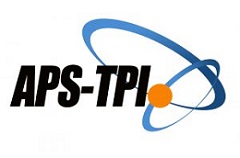Analysis of Students' Communication Skills in 21st Century Learning: Application of 4C-Based Problem Based Learning (PBL) in Elementary Schools
Abstract
Keywords
Full Text:
PDFReferences
Daryanto & Karim, S., (2017). Pembelajaran Abad 21. Yogyakarta: Gava Media
Hidayati, T., & Rahayu, S. (2021). Model Problem Based Learning dalam Meningkatkan Keterampilan Abad 21. Yogyakarta: Deepublish.
Huda, M. (2017). Model-Model Pengajaran dan Pembelajaran. Yogyakarta: Pustaka Pelajar.
Jonaedy, A. M. (2019). Konsep dan Strategi Pembelajaran di Era Revolusi Industri 4.0. Yogyakarta: Laksana.
Maulinda, S., & Putra, L. D. Analysis and Potential of Artificial Intelligence in Making Interactive Teaching Materials for Muhammadiyah Elementary School Teachers in Yogyakarta. Teknodika, 22(1), 1-10.
Meikasari, D., Rosilawati, I., & Tania, L. (2020). Efektivitas Model Pembelajaran Guided Discovery Pada Materi Kesetimbangan Kimia Dalam Meningkatkan Keterampilan Komunikasi Peserta didik. Jurnal Pendidikan dan Pembelajaran Kimia, 9(2), 66–80.
Muslich, M. (2019). Penilaian Otentik: Menilai Kompetensi Abad 21 dalam Kurikulum 2013. Jakarta: Bumi Aksara.
Mulyana, Deddy (2018). Metodologi Penelitian Kualitatif. Bandung: PT Remaja. Rosdakarya
Rusilowati, Ani. (2023). Konsep Desain Pembelajaran IPAS Untuk Mendukung Penerapan Asesmen Kompetensi Minimal. IPAS Learning Design Concept to Support the Application of Minimum Competency Assessment – Faculty of Mathematics and Natural Sciences (unnes.ac.id)
Saefudin, A., Sutama, S., Muhibbin, A., & Haryanto, S. Utilization of ICT in Online Education and Training to Enhance Academic Supervision of School Principals. Teknodika, 22(1), 65-76.
Seruni, S., Syarifuddin, S., Chotimah, U., Della, R. H., & Suratmi, S. Need Analysis for Digital Supplement Book on the Collection of Megalithic Distribution Material in Pagar Alam City for History Learning in Senior High School. Teknodika, 22(1), 77-86.
Sugiyono. (2018). Metode Penelitian Kuantitatif Kualitatif dan R&D. Bandung: Alfabeta
Suhelayanti, dkk. (2023). Pembelajaran Ilmu Pengetahuan Alam dan Sosial (IPAS). Langsa: Yayasan Kita Menulis.
Suja, I Wayan. (2020). Keterampilan Proses Sains. Yogyakarta: PT RajaGrafindo Persada
Yusuf, M. (2017). Asesemen dan Evaluasi Pendidikan. Jakarta: Prenadamedia Group.
Refbacks
- There are currently no refbacks.





.png)













